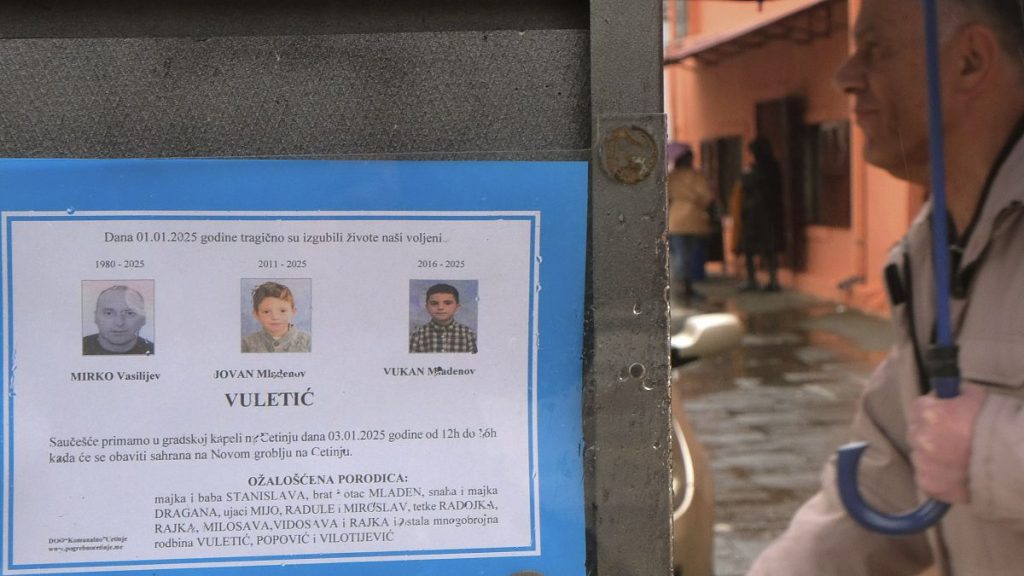A recent tragic shooting in the small Balkan country of Montenegro has prompted urgent actions to address the issue of illegal weapons in the country. Montenegro has a deeply-rooted gun culture, and it is reported that the country ranks sixth in the world for the number of illegal weapons per capita. The gunman responsible for the shooting used an illegal 9mm gun and ultimately took his own life after killing 12 people, including his own sister and two children. This incident has raised concerns about the level of violence in Montenegrin society and highlighted the need for stricter gun laws and better enforcement of existing regulations.
Following the shooting, an emergency session of Montenegro’s National Security Council has been convened to discuss measures to curb the prevalence of illegal weapons. Police found 37 casings at the shooting locations and more than 80 additional pieces of ammunition in the gunman’s possession. The tragic event has sparked mass public outrage and calls for accountability from the authorities. Hundreds of people lit candles in memory of the victims, while others took to the streets to demand the resignations of top security officials over the incident. The shooting has exposed the political divisions within Montenegro and urged a reevaluation of the readiness of state institutions to address issues such as gun ownership.
The Montenegro shooting is not an isolated incident, as the country experienced a similar massacre in August 2022, where 10 people were killed by an attacker in Cetinje. Human rights groups have called for a thorough examination of the responsibility and preparedness of the security system in light of these tragedies. The attacker in the recent shooting had a history of violent behavior, illegal weapons possession, and psychiatric treatment, raising questions about missed opportunities for prevention and intervention. Residents of Cetinje have expressed outrage and grief over the loss of innocent lives, demanding answers as to why such incidents occurred and what could have been done to prevent them.
The shootings in Montenegro have brought into sharp focus the wider societal issues that contribute to such violent incidents. Many people feel that the authorities have not done enough to prevent tragedies like these and are calling for stronger measures to address the root causes of gun violence. The level of violence in Montenegrin society and the apparent ease with which individuals can acquire illegal weapons underscore the urgent need for action to curb the illegal arms trade. Civil society groups are urging the government to take decisive steps to improve gun control laws and enhance enforcement mechanisms to prevent future tragedies from occurring.
The recent shooting incidents in Montenegro have shattered the sense of security and safety in the country, leaving many questioning the effectiveness of the state’s response to such crises. The loss of innocent lives, including children, has struck a chord with the public, leading to widespread calls for justice and accountability. The tragedy has highlighted the need for a comprehensive review of existing security measures and the development of strategies to prevent similar incidents in the future. The Montenegro government must prioritize public safety and take decisive actions to address the underlying issues that contribute to gun violence and illegal weapons proliferation in the country.
In the wake of the shooting, Montenegro finds itself at a critical juncture, grappling with the aftermath of a devastating tragedy and facing urgent calls for reform. The government must respond to the public outcry and take concrete steps to address the root causes of gun violence and strengthen efforts to control the illegal arms trade. The incidents in Cetinje have exposed the vulnerabilities in the security system and raised questions about the effectiveness of law enforcement in safeguarding citizens from harm. It is crucial for the authorities to heed the calls for justice and accountability, work collaboratively with civil society organizations, and implement measures that will ensure the safety and security of all Montenegrin citizens in the future.


